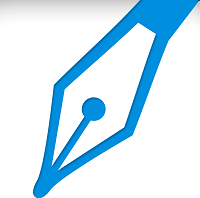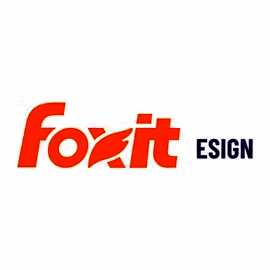Top Digital Signature Softwares
Digital Signature software is essential in today's digital landscape, providing secure verification of electronic documents and transactions. It ensures data integrity and authenticity, preventing tampering and unauthorized access. This software is crucial for businesses and individuals needing reliable, efficient methods to sign and validate documents remotely. With encryption technologies, Digit... Read More
17 companies found
Product Description
SignNow is an easy-to-use and reliable electronic signature solution designed to simplify document workflows for businesses of any size. Whether you're handling contracts, agreements, or any paperwork that requires a signature, SignNow makes the process quick and hassle-free. With its intuitive interface, anyone on your team can start using it right away without needing extensive training. One of... Read More
Users
- • No Data
Industries
- • No Data
Market Segment
- • No Data
Product Description
SignEasy is a user-friendly digital signing solution designed with simplicity in mind. Perfect for small businesses, freelance professionals, and anyone who regularly deals with contracts or forms, SignEasy streamlines the process of getting documents signed quickly and securely. Using SignEasy, you can upload documents, add your signature, and send them off to be signed by others, all in a few s... Read More
Users
- • No Data
Industries
- • No Data
Market Segment
- • No Data
Foxit eSign
Product Description
Foxit eSign is a straightforward digital signature solution designed to help businesses streamline the signing process. Whether you're handling contracts, agreements, or other important documents, Foxit eSign allows you to get them signed quickly, safely, and legally online. One of the main advantages of using Foxit eSign is the flexibility it offers. You can send your documents for signature dir... Read More
Users
- • No Data
Industries
- • No Data
Market Segment
- • No Data
DigiSigner
Product Description
DigiSigner is a user-friendly electronic signature software designed for businesses looking to streamline their document management and signing processes. It offers a straightforward, efficient way to get documents signed quickly and securely without the hassle of printing, scanning, or mailing paperwork. With DigiSigner, you can easily upload documents, send them out for signatures, and track the... Read More
Users
- • No Data
Industries
- • No Data
Market Segment
- • No Data
Product Description
eSignly is all about making signing documents easier and quicker for everyone involved. If you’re tired of printing, signing, scanning, and sending paper documents, eSignly can simplify that whole process for you. With eSignly, you can send out documents for signature directly from your computer or mobile device, and get them signed electronically in no time. It’s designed to be user-friendly, so... Read More
Users
- • No Data
Industries
- • No Data
Market Segment
- • No Data
Product Description
In today’s world, managing documents can be a hassle, but Soda PDF aims to simplify that for everyone. Whether you're working from your office, at home, or on the go, Soda PDF offers a complete set of easy-to-use tools that make working with PDFs straightforward and stress-free. Think of Soda PDF as your digital office assistant. It's designed to handle everyday document tasks quickly and efficie... Read More
Users
- • No Data
Industries
- • No Data
Market Segment
- • No Data
Product Description
SIGNiX is a digital signature software specifically designed to offer businesses a reliable and secure way to handle electronic signatures. This tool brings the convenience of signing documents online, making it a breeze for companies and their clients to complete important paperwork without the need for physical signatures or face-to-face meetings. With SIGNiX, users can sign documents anytime, ... Read More
Users
- • No Data
Industries
- • No Data
Market Segment
- • No Data
Adobe Document Cloud
Product Description
Adobe Document Cloud is a comprehensive software solution designed to help businesses manage their documents digitally. It's tailored for organizations of any size looking to simplify their document workflows and reduce reliance on paper. With Adobe Document Cloud, you can easily create, edit, sign, and share PDFs, making the entire process more efficient and secure. One of the key features of Ad... Read More
Users
- • No Data
Industries
- • No Data
Market Segment
- • No Data
CryptoBind Data Security
Product Description
CryptoBind Data Security is a smart, user-friendly solution designed to keep your company’s data safe without all the hassle. As your business grows, protecting your data becomes crucial, and this is where CryptoBind steps in to help. When you sign up for CryptoBind, you're choosing a product that makes maintaining data privacy straightforward. There’s no need to worry about getting bogged down ... Read More
Users
- • No Data
Industries
- • No Data
Market Segment
- • No Data
Product Description
SigPlus is a straightforward and efficient software solution designed to make electronic signatures easy and accessible for businesses of all sizes. The main goal of SigPlus is to simplify the process of signing, managing, and storing documents digitally, eliminating the need for physical paperwork. Using SigPlus is uncomplicated, allowing users to upload their documents, insert the required sign... Read More
Users
- • No Data
Industries
- • No Data
Market Segment
- • No Data
What is Digital Signature software and how does it work?
Understanding Digital Signature software
Digital Signature software is a specialized tool designed to provide a secure and verifiable method for signing digital documents. Unlike traditional handwritten signatures, a digital signature uses cryptographic techniques to ensure the authenticity and integrity of the signed data. This type of software has become essential in modern digital transactions, ensuring that documents are not altered in transit and validating the identity of the signer.
How Digital Signature software works
At its core, Digital Signature software operates through a process that involves key pairs and cryptographic algorithms. Here's a simplified explanation of how it typically works:
-
Key Generation: When using Digital Signature software, a user generates a pair of cryptographic keys—a public key and a private key. The private key is kept secure, while the public key can be shared with others.
-
Signing Process: To sign a document, the software creates a hash of the document. A hash is a fixed-size string of characters that uniquely represents the data. This hash is then encrypted using the signer's private key. The encrypted hash, combined with the hashing algorithm, constitutes the digital signature.
-
Verification: When the recipient receives the signed document, they use the signer’s public key to decrypt the signature. This generates a hash of the original data. The recipient also calculates the hash of the received document independently. If the two hashes match, it confirms that the document has not been tampered with and verifies the signer's identity.
-
Certificates and Trust: Typically, Digital Signature software uses digital certificates issued by trusted Certificate Authorities (CAs). These certificates connect the signer's identity to their public key, providing a level of trust in the signature's validity.
-
Integration: Digital Signature software can integrate with various applications and platforms, allowing users to sign documents directly from these environments. This integration streamlines workflows and ensures that digital transactions occur smoothly.
Applications of Digital Signature software
Digital Signature software is widely used across numerous sectors requiring secure documentation processes. This includes:
-
Legal Industry: Often used for contracts and legal documents, where authenticity and non-repudiation are crucial.
-
Finance: Enables secure transactions and communication between financial institutions and their clients.
-
Healthcare: Helps in maintaining the privacy and integrity of patient data, complying with regulations like HIPAA.
-
Government: Facilitates secure interdepartmental communication and service delivery to citizens.
As digital interactions continue to increase, the reliance on Digital Signature software is expected to grow, underscoring its role in maintaining secure and trustworthy digital environments. Understanding its basic functionalities provides insight into how it fosters trust in electronic communication and documentation.
What are the key benefits of using Digital Signature software for businesses?
Enhanced Security
Digital Signature software provides unmatched security through encryption technologies. It ensures the authenticity and integrity of documents by verifying the identity of the signatories. This technology reduces the risk of forgery or fraudulent alterations. Businesses can confidently authenticate documents, secure sensitive information, and ensure compliance with various legal and regulatory standards.
Cost Efficiency
Implementing Digital Signature software can lead to significant cost savings for businesses. It eliminates the need for printing, scanning, and mailing physical documents. By reducing or removing paper consumption, businesses can lower costs associated with purchasing, storing, and disposing of paper. Furthermore, it reduces the environmental impact of operations, aligning with sustainable practices.
Time Savings
The use of Digital Signature software significantly speeds up the signing process. Unlike traditional methods, which may take days or weeks for document signing and return, digital signatures can be executed within minutes. This quick turnaround accelerates workflow and decision-making, enhancing efficiency across business operations and leading to improved productivity.
Legal Validity and Compliance
Digital Signature software is recognized by major legal systems around the world, providing the same legal standing as handwritten signatures. This software ensures that signed documents comply with industry regulations, increasing their acceptance in both domestic and international business environments. By automating compliance processes, businesses can safeguard themselves against potential legal liabilities.
Improved Workflow and Collaboration
By using Digital Signature software, businesses can streamline their document management systems. It facilitates better collaboration by allowing multiple parties to review, sign, and approve documents remotely and simultaneously. This supports a more collaborative and agile working environment, enabling teams to operate efficiently regardless of their physical location.
Audit Trails and Documentation
Digital Signature software provides a comprehensive audit trail, offering businesses a detailed log of every step in the signing process. This includes who signed the document, when and where it was signed, and any changes made. These records are invaluable for maintaining transparency and accountability, making it easier for businesses to track and manage document workflows.
Customer Experience Enhancement
By simplifying and speeding up the signing process, Digital Signature software can greatly improve the customer experience. Clients appreciate the convenience of signing documents from any location, which can enhance a business’s reputation for efficiency and transparency. This convenience can lead to increased customer satisfaction and retention.
Scalability
Businesses of all sizes can benefit from the scalability offered by Digital Signature software. Whether it’s a small startup or a large enterprise, the software can be integrated seamlessly into existing systems and processes, scaling up or down as needed. This flexibility makes it easier for businesses to adapt to changing needs and growth trajectories.
Through these benefits, Digital Signature software enables businesses to enhance operational efficiency, security, and customer engagement while aligning with modern digital practices.
How does Digital Signature software enhance document security and authenticity?
Digital Signature software plays a crucial role in enhancing the security and authenticity of digital documents. By using cryptographic algorithms, Digital Signature software ensures that documents are not only securely signed but also protected from unauthorized modifications.
Encryption and Authentication
At the core of Digital Signature software is encryption technology. When a user signs a document using such software, it generates a unique hash value (a kind of digital fingerprint) for the document. This hash value is then encrypted using the signer’s private key. When the document is sent to a recipient, the software allows them to use the signer’s public key to decrypt this hash value. If, after decrypting, the hash matches the hash computed from the received document, it confirms the document’s authenticity and integrity.
Tamper-Proof
One of the fundamental security features of Digital Signature software is its ability to detect document tampering. Any changes to the document after it’s been signed would result in a different hash value being generated. Since the signature would no longer match the derived hash, this discrepancy signals the document's alteration, alerting recipients to potential unauthorized changes.
Non-Repudiation
By linking the identity of the signer to the document, Digital Signature software ensures non-repudiation. This means that once a document is signed, the signer cannot credibly deny having signed it later. The binding nature of a digital signature is akin to a handwritten signature, but without the pitfalls of forgery. The authentication mechanisms inherent in Digital Signature software provide an auditable trail that holds the signer accountable.
Identity Verification
Digital Signature software often incorporates robust identity verification processes. Before a user can generate a digital signature, they typically undergo identity checks that establish their credentials. This might involve providing official identification documents or undergoing other verification methods. This process strengthens trust in the signed document, as it associates the signature with a verified identity.
Certificate Authorities
Certificate Authorities (CAs) are integral to the Digital Signature software ecosystem. They issue digital certificates that validate the identity of the user behind a digital signature. These certificates, issued by trusted CAs, are essential in fostering a secure environment where users can confidently exchange signed documents. This layer of trust is vital for maintaining the integrity of document exchanges across digital platforms.
Compliance and Legal Validation
Digital Signature software frequently complies with international and industry standards such as eIDAS, ESIGN, and UETA. These standards provide the legal framework and assure that digital signatures are accepted as valid proofs of agreement in many jurisdictions worldwide. Such compliance enhances the security and authenticity of signed documents by adhering to legal validation protocols that stakeholders recognize globally.
Streamlined Document Handling
Aside from security, Digital Signature software enhances document authenticity by streamlining the signing process. It allows for quick, efficient signing, management, and verification of documents without the delays associated with traditional methods. Users can execute agreements faster while maintaining high security and authenticity levels, crucial in time-sensitive environments.
By using Digital Signature software, organizations and individuals can protect their documents, maintain data integrity, and establish trust in digital communications. This robust software category provides valuable tools for securing sensitive information and authenticating transactions in a continually evolving digital landscape.
What are the common features to look for in Digital Signature software?
Digital Signature software is an essential tool for businesses seeking efficiency and security in document management. This software allows users to sign documents digitally, providing an electronic alternative to traditional pen-and-paper signatures. When choosing Digital Signature software, several key features should be considered to ensure that it meets business needs and compliance requirements.
Security and Compliance
Security is paramount in any Digital Signature software. The software should adhere to global standards such as the eIDAS (European Union) and the ESIGN Act (United States) to legally recognize electronic signatures. Look for robust encryption methods that protect signature integrity and document authenticity. Multi-factor authentication and access controls are also crucial for ensuring that only authorized personnel can sign documents.
Ease of Use
Digital Signature software should offer a user-friendly interface that requires minimal training for everyday use. Features like drag-and-drop functionality, intuitive navigation, and clear instructions facilitate smoother integration into business processes. A simple process for signing, sending, and managing documents improves workflow efficiency.
Integration Capability
Integration with existing business tools and applications is vital for seamless operations. Digital Signature software should easily integrate with popular software such as CRM systems, document management systems, and cloud storage services. This capability allows businesses to automate workflows and reduce manual data entry, enhancing productivity.
Audit Trails
Audit trails maintain a complete record of all activities associated with a document, from creation to signature. This feature is critical for both transparency and compliance, providing a timestamped log of who accessed or signed a document, when it occurred, and any changes made. Comprehensive audit trails support accountability and can aid in legal disputes.
Mobile Support
In an increasingly mobile world, Digital Signature software must provide support for smartphones and tablets. Mobile compatibility allows users to review and sign documents on the go, promoting flexibility and timely approvals. Look for applications that offer a consistent user experience across different devices and operating systems.
Customizable Templates
Customizable templates allow businesses to create standardized forms and contracts, saving time on document preparation. Digital Signature software should enable users to build and apply custom templates that reflect brand elements and meet specific business needs. Features like automatic field recognition further streamline the signing process.
Bulk Sending
Businesses often need to send multiple documents for signature simultaneously. The bulk sending feature enables users to distribute documents to several signers at once, reducing administrative workload. This capability is particularly beneficial for large-scale operations or transaction-heavy environments.
Notification and Alerts
Notifications and alerts ensure timely action by informing users when a document requires signature or when a signature is completed. Automated reminders can prompt users or signers to take action, minimizing delays in the approval process. This feature enhances responsiveness and ensures critical documents don't get overlooked.
Legally Binding Signatures
Digital Signature software should guarantee that electronic signatures are legally binding and admissible in court. Look for solutions with certificates of completion that provide evidentiary support, outlining the signature process and authenticating the signer's identity.
In conclusion, selecting the right Digital Signature software involves considering a variety of essential features, including security, ease of use, integration capabilities, audit trails, mobile support, customizable templates, bulk sending, notifications, and legally binding signatures. These features collectively ensure that businesses can securely and efficiently manage their document signing needs.
How can Digital Signature software improve workflow efficiency in organizations?
Digital Signature software enhances workflow efficiency by enabling secure electronic signing processes in various organizational workflows. Here are some ways it optimizes work processes:
Streamlined Document Processing
Digital Signature software streamlines the document signing process by replacing manual handwriting with digital signatures. This means fewer physical meetings and less paperwork. You can send, sign, and receive documents instantly online, significantly reducing the time required for approval processes.
Faster Turnaround Times
Speeding up document workflows is another advantage. With Digital Signature software, documents that once took days or weeks to process can now be completed in minutes or hours. This acceleration minimizes bottlenecks in workflows, allowing teams to proceed with projects without unnecessary delays.
Enhanced Security and Compliance
Digital Signature software provides advanced security measures that ensure signatures are authentic, documents are tamper-evident, and records meet legal standards. By doing so, organizations can maintain the integrity and confidentiality of their documents. This compliance with legal and industry standards prevents workflow disruptions related to security concerns.
Improved Collaboration
Digital Signature software facilitates better collaboration by enabling multiple stakeholders to sign documents, no matter where they are located. This remote access to documentation helps teams work together seamlessly, overcoming geographical barriers, which traditionally hinder workflow efficiency.
Cost Reduction
Using Digital Signature software reduces costs associated with printing, mailing, and storing physical documents. The reduction in material and labor costs translates to significant savings, which can be redirected to other essential areas of the organization, enhancing overall workflow efficiencies.
Reduced Error Rates
Manual documentation is prone to errors. Digital Signature software includes features that validate document fields, automatically populate information, and ensure all necessary signatures are obtained. This automation reduces the risk of human error, thus preventing delays that could arise from correcting mistakes.
Better Document Management
Digital Signature software contributes to efficient document management by storing signed documents electronically. This digital filing system makes retrieving and organizing documents quick and easy. Efficient document management saves time and effort, improving workflow efficiency.
Real-Time Tracking and Status Updates
Real-time tracking features allow users to monitor document progress through the signing process. This transparency prevents unnecessary follow-up inquiries and helps identify where documents are in the workflow. Being able to see status updates in real-time ensures that everyone involved is informed and any issues can be addressed promptly.
Scalability
Digital Signature software can scale with the needs of an organization. Whether a company is handling a handful or thousands of documents monthly, the software can efficiently manage the workload. This scalability supports growing businesses and ensures that increased demands do not hinder workflow efficiency.
By leveraging Digital Signature software, organizations can vastly improve their workflow efficiency. Implementing such software fosters a more agile, responsive, and secure working environment, facilitating smooth operations and strategic growth.
What industries can benefit the most from using Digital Signature software?
Financial Services
The financial services industry greatly benefits from Digital Signature software by enhancing security and efficiency. It enables institutions to authenticate documents like loan agreements and contracts swiftly while maintaining compliance with regulatory standards. The use of digital signatures minimizes human errors and eliminates the need for physical document storage, saving both time and costs.
Legal
In the legal sector, Digital Signature software streamlines the signing of legal documents, such as agreements, affidavits, and contracts. It ensures legal compliance, as many jurisdictions recognize digital signatures as legally binding. This software reduces turnaround times, enabling faster deal closures and client satisfaction without compromising on the legal authenticity and integrity of documents.
Healthcare
Healthcare providers can leverage Digital Signature software for signing patient records, consent forms, and prescriptions. It enhances the confidentiality and security of patient information while complying with healthcare regulations like HIPAA. The elimination of paperwork allows healthcare professionals to focus more on patient care and less on administrative tasks.
Real Estate
Real estate agencies and agents use Digital Signature software to facilitate property sales and lease agreements. This software allows for the quick execution of contracts, enabling faster property handovers and closures. It also helps in maintaining an organized digital trail of documentation, which is vital for auditing purposes.
Government
Government agencies benefit from Digital Signature software by enhancing transparency, reducing bureaucracy, and improving process efficiency. This can be seen in areas like e-filing of taxes, submission of public tenders, and issuance of certificates. The authenticity and integrity of governmental documents are upheld, fostering trust in public administration processes.
Pharmaceuticals
In the pharmaceuticals industry, where documentation is crucial, Digital Signature software aids in the signing of regulatory submissions, manufacturing documentation, and clinical trial records. It ensures compliance with industry-specific standards such as FDA’s 21 CFR Part 11. The use of this software minimizes delays in bringing new drugs to market by streamlining the approval process.
Education
Educational institutions utilize Digital Signature software for signing academic records, diplomas, and administrative approvals. This reduces paperwork and shortens processing times for student applications and faculty contracts. The ability to secure and verify electronic signatures lends credibility to educational certifications and administrative processes.
Information Technology
The IT sector benefits from Digital Signature software to secure software licenses, NDA agreements, and service contracts. As cybersecurity is crucial, digital signatures help protect IT companies by ensuring the authenticity of signed documents. This also facilitates seamless collaboration across teams located globally.
Human Resources
HR departments in various industries apply Digital Signature software to sign employment contracts, policy documents, and appraisal forms. This not only speeds up the onboarding process but also ensures confidential handling of sensitive employee information. By digitizing document workflows, HR departments improve operational efficiency and focus on strategic tasks.
By implementing Digital Signature software, industries enhance document security, compliance, and operational speed, adapting to the digital-first landscape essential for business today.
What are the legal implications of using Digital Signature software in different countries?
Overview
Digital Signature software is crucial for the secure and valid execution of electronically signed documents. As businesses and governmental organizations move toward paperless operations, understanding the legal facets of Digital Signature software becomes essential. Legal acceptance varies globally, impacting how organizations implement this technology.
United States
In the United States, the Electronic Signatures in Global and National Commerce Act (ESIGN Act) of 2000 and the Uniform Electronic Transactions Act (UETA) provide the legal framework for Digital Signatures. These laws stipulate that Digital Signatures hold the same legal status as traditional handwritten signatures. Users must ensure that the Digital Signature software complies with specific technological requirements and authentication processes to be legally binding.
European Union
The European Union recognizes Digital Signature software under the eIDAS Regulation. This regulation classifies signatures into advanced and qualified categories, providing a stringent framework for authentication. Qualified Electronic Signatures (QES), created through certified Digital Signature software, have the same legal effect as handwritten signatures across all EU member states.
Canada
In Canada, Digital Signatures are legally recognized through the Personal Information Protection and Electronic Documents Act (PIPEDA) and various provincial laws like Ontario's Electronic Commerce Act. These laws permit the use of electronic signatures, including digital ones, provided there is an intention to sign and consent from all parties involved. Compliance with provincial and federal guidelines ensures legal recognition.
India
India accepts Digital Signatures under the Information Technology Act, 2000. The Controller of Certifying Authorities (CCA) regulates Digital Signature software to ensure security and authenticity. Digital signatures hold legal validity if they are obtained through licensed certifying authorities and adhere to outlined standards.
Australia
In Australia, Digital Signature software is recognized by the Electronic Transactions Act 1999. This Act supports the use of digital methods, including signatures, to fulfill legal requirements when the involved parties consent. Digital Signatures must follow specific technological and procedural standards to be accepted in legal scenarios.
China
China's legal framework for Digital Signature software is governed by the Electronic Signature Law of the People's Republic of China. Digital Signatures require certification from recognized authorities to be legally binding. These signatures are legally equivalent to handwritten ones when aligned with the outlined legal and regulatory standards.
Japan
Japan allows for the use of Digital Signature software under the Act on Electronic Signatures and Certification Business. Electronic signatures are legally valid if they meet criteria such as identity verification and security integrity. Certification from authorized entities ensures the legal standing of digital documents.
Brazil
In Brazil, the legal acceptance of Digital Signature software falls under the Brazilian Digital Signature Law and other related regulations. The ICP-Brasil framework requires digital signatures to be encrypted and meet stringent validation criteria to hold legal significance, in line with national security protocols.
Understanding the legal backdrop of Digital Signature software helps organizations ensure compliance and streamline operations in a digitally evolving landscape. Different regions emphasize varying levels of certification, authentication, and security standards, making it critical to align software usage with regional legislation.









